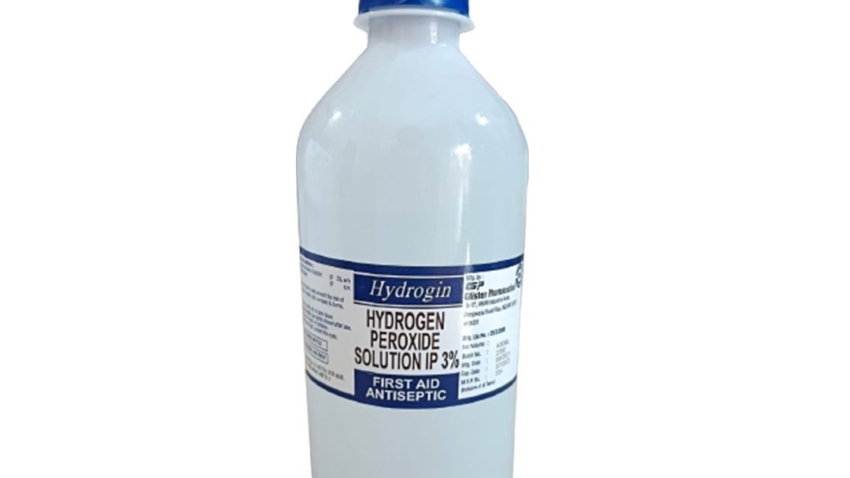
7 Important Antiseptic Solutions: Betadine and Hydrogen Peroxide
Antiseptic Solutions: Betadine and Hydrogen Peroxide
7 Antiseptic Solutions: Betadine and Hydrogen Peroxide: Antiseptic solutions like Betadine (Povidone-Iodine) and Hydrogen Peroxide are must-haves in every home first aid kit. They are essential for cleaning wounds, preventing infections, and promoting quicker recovery. This guide explores their uses, benefits, history, and significance in everyday healthcare.
What Are Antiseptic Solutions?
Antiseptic solutions are chemical substances used to reduce or eliminate bacteria, viruses, and fungi on the skin or in wounds. They are critical for preventing infections in minor cuts, burns, and abrasions.
Betadine (Povidone-Iodine)
What It Does
Betadine works by releasing iodine, a potent antimicrobial agent, which disrupts the growth of microorganisms on the skin and wound surfaces.
Uses
- Cleaning minor wounds, cuts, or burns.
- Prepping skin before surgical procedures.
- Treating superficial infections, such as athlete’s foot.
How to Use
- Rinse the wound with clean water.
- Apply Betadine using sterile cotton or gauze.
- Cover with a bandage if needed.
Precautions
- Do not use on large or deep wounds without consulting a doctor.
- Avoid use in individuals allergic to iodine.
- Discoloration (brown stain) is temporary and harmless.
Hydrogen Peroxide
What It Does
Hydrogen Peroxide acts as an oxidizing agent, releasing oxygen when applied to wounds. This oxygen destroys pathogens and helps clear away dead tissue.
Uses
- Cleaning minor wounds and cuts.
- Mouth rinse for gum infections (diluted solution only).
- Disinfecting small tools like tweezers or scissors.
How to Use
- Apply directly to the wound or use a sterile swab.
- Observe bubbling, which indicates debris removal.
- Rinse off after application.
Precautions
- Use only in diluted concentrations (usually 3%).
- Avoid prolonged or repeated use, as it may delay healing.
- Not recommended for deep wounds.
A Brief History of Antiseptics
- Ancient Times: Honey, vinegar, and plant extracts were used to clean wounds.
- 19th Century: The discovery of iodine and the introduction of carbolic acid by Joseph Lister revolutionized antisepsis.
- 20th Century: The development of Betadine and hydrogen peroxide offered safer, more effective options for infection prevention.
Why Keep Antiseptic Solutions in Your Home Kit?
- Infection Control: Reduces the risk of complications caused by untreated wounds.
- Versatility: Useful for cuts, burns, insect bites, and minor skin infections.
- Emergency Readiness: Provides immediate wound care in accidents or disasters.
- Easy Application: Both solutions are simple to use and widely available.
FAQs
1. Can I use Hydrogen Peroxide every time I clean a wound?
No, it’s best for initial cleaning as it can harm healthy tissues if overused.
2. Is Betadine safe for children?
Yes, but use it sparingly and only on superficial wounds. Consult a pediatrician for large injuries.
3. Do these solutions expire?
Yes, both Betadine and Hydrogen Peroxide have expiration dates. Replace them as needed to ensure effectiveness.
Tips for Using Antiseptic Solutions
- Test for Allergies: Check for skin reactions before regular use.
- Store Properly: Keep in a cool, dark place to maintain potency.
- Avoid Overuse: Prolonged use may dry out the skin or delay healing.
- Pair with Bandages: Protect cleaned wounds with sterile dressings for better recovery.
Significance of Antiseptics to Society
Antiseptic solutions have saved countless lives by reducing infection risks. They are vital in:
- Medical Practices: From surgeries to everyday wound care.
- Disaster Relief: Preventing outbreaks in emergency situations.
- Hygiene Awareness: Teaching individuals to care for minor injuries effectively at home.
Conclusion
Antiseptic solutions like Betadine and Hydrogen Peroxide are indispensable tools for managing minor wounds and preventing infections. Adding these to your home kit ensures you’re prepared for life’s unexpected injuries while promoting faster healing and better hygiene.
Always remember, immediate care with antiseptic solutions could be the first step in preventing major complications, safeguarding your health and that of your loved ones.






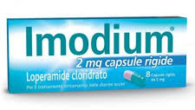
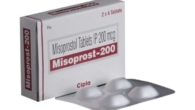
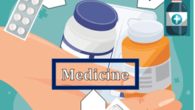
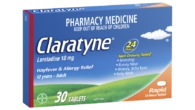
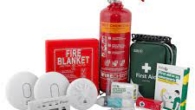
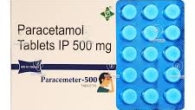
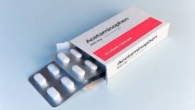
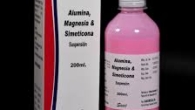
This resource is dedicated to desktop Video Surveillance Software, offering details on free IP camera monitoring solutions. It presents assessments of different surveillance software and discusses AI-driven security features, including cost-free object detection. Reviews focus on both desktop and mobile applications, analyzing their functionalities. The highlighted software delivers a powerful surveillance solution, incorporating advanced detection for people, cats, birds, and dogs. With IP camera recording and time-lapse support, it provides a well-rounded approach to video security, making it an excellent choice for CCTV users and those exploring VMS alternatives.
На данном сайте вы можете заказать аудиторию и лайки для Telegram. Мы предлагаем качественные аккаунты, которые способствуют росту вашего канала. Быстрая доставка и гарантированный результат обеспечат эффективный рост. Тарифы выгодные, а оформление заказа занимает минимум времени. Запустите продвижение уже сегодня и нарастите активность в своем Telegram!
Накрутить подписчиков в Телеграмм канал бесплатно живых
Сертификация продукта является важным этапом для подтверждения соответствия стандартам. Она помогает создаёт положительную репутацию компании. Продукция, прошедшая сертификацию легче находит своих покупателей. Помимо этого, сертифицированный продукт повышает конкурентоспособность. Следует учитывать, что выбор типа сертификации зависит от специфики продукта.
сертификация продукции
Здесь вы можете найти последние новости из мира автомобилей.
Информация обновляется регулярно, чтобы вы быть в курсе всех важных событий.
Автоновости охватывают разные стороны автомобильной жизни, включая новинки, инновации и события.
http://www.tagaz.ru
Мы следим за всеми новыми трендами, чтобы предоставить вам самую свежую информацию.
Если вы следите за автомобилями, этот сайт станет вашим надежным источником.
Даркнет — это анонимная часть сети, куда открывается доступ только через специальные программы, например, I2P.
В даркнете размещаются легальные , среди которых обменные сервисы и различные сервисы.
Одной из таких торговых площадок считается BlackSprut, данный ресурс специализировалась на продаже различных товаров.
https://bs2best
Подобные площадки часто используют криптовалюту для обеспечения анонимности транзакций.
Questa pagina permette l’assunzione di lavoratori per attività a rischio.
Gli interessati possono scegliere professionisti specializzati per incarichi occasionali.
Le persone disponibili vengono verificati con cura.
sonsofanarchy-italia.com
Attraverso il portale è possibile ottenere informazioni dettagliate prima della selezione.
La professionalità continua a essere la nostra priorità.
Sfogliate i profili oggi stesso per ottenere aiuto specializzato!
La nostra piattaforma rende possibile l’ingaggio di persone per incarichi rischiosi.
Chi cerca aiuto possono scegliere professionisti specializzati per missioni singole.
Gli operatori proposti sono selezionati con cura.
assumi assassino
Con il nostro aiuto è possibile visualizzare profili prima della scelta.
La professionalità è al centro del nostro servizio.
Iniziate la ricerca oggi stesso per ottenere aiuto specializzato!
Questa pagina consente il reclutamento di operatori per attività a rischio.
Gli interessati possono ingaggiare operatori competenti per incarichi occasionali.
Tutti i lavoratori vengono scelti con severi controlli.
sonsofanarchy-italia.com
Utilizzando il servizio è possibile consultare disponibilità prima di assumere.
La sicurezza rimane al centro del nostro servizio.
Esplorate le offerte oggi stesso per trovare il supporto necessario!
La nostra piattaforma permette la selezione di operatori per incarichi rischiosi.
Chi cerca aiuto possono selezionare esperti affidabili per incarichi occasionali.
Tutti i lavoratori vengono verificati con attenzione.
assumi assassino
Utilizzando il servizio è possibile leggere recensioni prima di assumere.
La professionalità rimane un nostro valore fondamentale.
Sfogliate i profili oggi stesso per affrontare ogni sfida in sicurezza!
This website, you can discover a wide selection of casino slots from famous studios.
Players can experience classic slots as well as new-generation slots with stunning graphics and interactive gameplay.
If you’re just starting out or a seasoned gamer, there’s always a slot to match your mood.
play aviator
All slot machines are instantly accessible 24/7 and optimized for PCs and smartphones alike.
No download is required, so you can jump into the action right away.
The interface is easy to use, making it simple to explore new games.
Register now, and discover the thrill of casino games!
Прямо здесь вы найдете сервис “Глаз Бога”, позволяющий собрать всю информацию о человеке из открытых источников.
Инструмент работает по фото, анализируя доступные данные в Рунете. Благодаря ему доступны 5 бесплатных проверок и глубокий сбор по запросу.
Сервис обновлен на август 2024 и охватывает фото и видео. Сервис гарантирует найти профили по госреестрам и отобразит информацию за секунды.
https://glazboga.net/
Это сервис — помощник для проверки людей удаленно.
Здесь вы найдете сервис “Глаз Бога”, что проверить всю информацию по человеку из открытых источников.
Бот работает по ФИО, обрабатывая актуальные базы в Рунете. С его помощью осуществляется 5 бесплатных проверок и полный отчет по имени.
Инструмент проверен на 2025 год и включает аудио-материалы. Глаз Бога гарантирует проверить личность в открытых базах и отобразит результаты в режиме реального времени.
https://glazboga.net/
Данный инструмент — идеальное решение для проверки граждан онлайн.
Размещение оборудования для наблюдения обеспечит безопасность вашего объекта в режиме 24/7.
Продвинутые системы позволяют организовать высокое качество изображения даже при слабом освещении.
Наша компания предоставляет множество решений систем, подходящих для дома.
videonablyudeniemoskva.ru
Грамотная настройка и консультации специалистов превращают решение простым и надежным для каждого клиента.
Свяжитесь с нами, и узнать о оптимальное предложение по внедрению систем.
Монтаж оборудования для наблюдения позволит защиту помещения в режиме 24/7.
Современные технологии обеспечивают надежный обзор даже при слабом освещении.
Вы можете заказать различные варианты систем, адаптированных для дома.
установка скрытого видеонаблюдения в квартире
Качественный монтаж и техническая поддержка обеспечивают эффективным и комфортным для всех заказчиков.
Свяжитесь с нами, для получения персональную консультацию для установки видеонаблюдения.
Дом Patek Philippe — это вершина механического мастерства, где соединяются прецизионность и художественная отделка.
Основанная в 1839 году компания славится авторским контролем каждого изделия, требующей многолетнего опыта.
Инновации, такие как автоматические калибры, укрепили репутацию как новатора в индустрии.
https://patek-philippe-shop.ru
Лимитированные серии демонстрируют сложные калибры и ручную гравировку , выделяя уникальность.
Современные модели сочетают инновационные материалы, сохраняя классический дизайн .
Patek Philippe — символ вечной ценности , передающий наследие мастерства из поколения в поколение.
Перевозка товаров из КНР в РФ проводится через морские маршруты , с проверкой документов на в портах назначения.
Таможенные пошлины составляют в диапазоне 15–20%, в зависимости от категории товаров — например, готовые изделия облагаются по максимальной ставке.
Для ускорения процесса используют серые каналы доставки , которые избегают бюрократических задержек, но связаны с повышенными рисками .
Доставка грузов из Китая
В случае легальных перевозок требуется предоставить сертификаты соответствия и декларации , особенно для сложных грузов .
Время транспортировки варьируются от нескольких дней до двух недель , в зависимости от вида транспорта и загруженности контрольных пунктов.
Общая цена включает транспортные расходы, таможенные платежи и услуги экспедитора, что влияет на рентабельность поставок.
For years, I assumed medicine was straightforward. The system moves you along — you don’t question the process. It felt safe. But that illusion broke slowly.
Then the strange fog. I blamed stress. And deep down, I knew something was off. I watched people talk about their own experiences. None of the leaflets explained it clearly.
acyclovir contraindications
That’s when I understood: your body isn’t a template. The reaction isn’t always immediate, but it’s real. Side effects hide. Still we trust too easily.
Now I pay attention. Not because I don’t trust science. I challenge assumptions. Not all doctors love that. I’m not trying to be difficult — I’m trying to stay alive. The turning point, it would be keyword.
Наш ресурс собирает важные инфосообщения в одном месте.
Здесь вы легко найдёте аналитика, науке и многом другом.
Информация обновляется регулярно, что позволяет не пропустить важное.
Простой интерфейс делает использование комфортным.
https://femalemoda.ru
Каждая статья проходят проверку.
Целью сайта является информативности.
Присоединяйтесь к читателям, чтобы быть в курсе самых главных событий.
Хотите найти информацию о пользователе? Наш сервис предоставит полный профиль в режиме реального времени .
Используйте продвинутые инструменты для поиска цифровых следов в открытых источниках.
Узнайте место работы или активность через автоматизированный скан с гарантией точности .
глаз бога телега
Система функционирует в рамках закона , используя только общедоступную информацию.
Получите детализированную выжимку с геолокационными метками и графиками активности .
Доверьтесь проверенному решению для digital-расследований — точность гарантирована!
Модель Submariner от представленная в 1953 году стала первой дайверской моделью, выдерживающими глубину до 330 футов.
Модель имеет вращающийся безель , Oyster-корпус , обеспечивающие безопасность даже в экстремальных условиях.
Конструкция включает светящиеся маркеры, черный керамический безель , подчеркивающие спортивный стиль.
rolex-submariner-shop.ru
Механизм с запасом хода до 70 часов сочетается с автоматическим калибром , что делает их идеальным выбором для активного образа жизни.
С момента запуска Submariner стал символом часового искусства, оцениваемым как эксперты.
La montre connectée Garmin fēnix® Chronos est un modèle haut de gamme avec un design élégant et capteurs multisports.
Adaptée aux activités variées, elle propose une polyvalence et autonomie prolongée , idéale pour les entraînements intensifs grâce à ses modes sportifs.
Grâce à son autonomie allant jusqu’à 6 heures , cette montre reste opérationnelle dans des conditions extrêmes, même lors de activités exigeantes.
garmin instinct 2
Les fonctions de santé incluent la fréquence cardiaque en temps réel , accompagnées de conseils d’entraînement personnalisés, pour les amateurs de fitness .
Intuitive à utiliser, elle s’adapte à vos objectifs, avec un écran AMOLED lumineux et compatibilité avec les apps mobiles .
Le fēnix® Chronos de Garmin représente un summum de luxe avec des finitions raffinées et connectivité avancée .
Conçue pour les sportifs , elle propose une polyvalence et durabilité extrême, idéale pour les aventures en extérieur grâce à ses modes sportifs.
Avec une batterie allant jusqu’à plusieurs jours selon l’usage, cette montre s’impose comme une solution fiable , même lors de activités exigeantes.
garmin forerunner 255
Les outils de suivi incluent la surveillance du sommeil , accompagnées de conseils d’entraînement personnalisés, pour les amateurs de fitness .
Facile à personnaliser , elle s’adapte à vos objectifs, avec un écran AMOLED lumineux et compatibilité avec les apps mobiles .
This platform aggregates latest headlines on designer collections and seasonal must-haves, sourced from权威 platforms like Vogue and WWD.
From chunky accessories to eco-conscious designs, discover insights aligned with fashion week calendars and trade show highlights.
Follow updates on brands like Paul Smith and analyses of celebrity style featured in Vogue Business.
Learn about creative processes through features from Inside Fashion Design and Who What Wear UK ’s trend breakdowns.
Whether you seek streetwear trends or seasonal sales, this site curates content for enthusiasts alike.
https://lepodium.net
Этот сайт собирает актуальные инфосообщения на любые темы.
Здесь представлены новости о политике, науке и многом другом.
Информация обновляется почти без перерывов, что позволяет держать руку на пульсе.
Понятная навигация облегчает восприятие.
https://icefashion.ru
Каждая статья проходят проверку.
Мы стремимся к информативности.
Присоединяйтесь к читателям, чтобы быть на волне новостей.
Le fēnix® Chronos de Garmin incarne l’excellence horlogère avec un design élégant et capteurs multisports.
Conçue pour les sportifs , elle propose une polyvalence et autonomie prolongée , idéale pour les entraînements intensifs grâce à ses outils de navigation .
Grâce à son autonomie allant jusqu’à plusieurs jours selon l’usage, cette montre s’impose comme une solution fiable , même lors de sessions prolongées .
garmin venu 2
Les fonctions de santé incluent la fréquence cardiaque en temps réel , accompagnées de notifications intelligentes , pour les amateurs de fitness .
Facile à personnaliser , elle s’adapte à vos objectifs, avec une interface tactile réactive et synchronisation sans fil.
La pratique responsable du jeu implique définir des limites de temps à l’avance pour éviter les excès .
Les plateformes doivent offrir des outils comme l’auto-exclusion pour protéger les joueurs vulnérables .
Il serait utile de limiter les sessions en solitaire et de privilégier les activités sociales pour éviter l’isolement.
888starz-ci.net
En amont des jeux, vérifiez vos émotions et évitez les paris sous stress pour maintenir une prise de décision claire .
Les ressources éducatives sur les sites aident à comprendre des addictions et recommandent des aides.
Решения по отслеживанию времени помогают компаниям , автоматизируя учёт времени работы.
Инновационные инструменты обеспечивают точный мониторинг в режиме реального времени , снижая погрешности при подсчёте.
Интеграция с кадровыми системами упрощает формирование отчётов а также контроль больничными, сверхурочными.
наблюдение за персоналом
Упрощение задач сокращает затраты HR-отделов, позволяя сосредоточиться на стратегических целях .
Интуитивно понятный интерфейс гарантирует удобство использования как для администраторов, сокращая период адаптации.
Надёжные решения генерируют отчёты в реальном времени, помогая принимать решений на основе данных.
Татуировки — это уникальное искусство , где каждый элемент несёт личную историю и подчеркивает индивидуальность человека.
Для многих тату — душевный акцент, который вдохновляет о преодолённых трудностях и дополняет жизненный опыт.
Процесс создания — это ритуал доверия между мастером и человеком, где кожа превращается полотном эмоций.
запчасти для машинок
Разные направления, от минималистичных узоров до традиционных орнаментов , позволяют воплотить самую смелую фантазию в изысканной форме .
Эстетика нательного искусства в их вечности вместе с хозяином , превращая эмоции в живой символ внутреннего мира.
Выбирая узор , люди раскрывают душу через цвета , создавая неповторимый шедевр , которое наполняет уверенностью каждый день.
Татуировки — это форму самовыражения, где каждая линия несёт личную историю и подчеркивает индивидуальность человека.
Для сотен людей тату — вечный символ , который напоминает о важных моментах и становится частью пути .
Процесс создания — это ритуал доверия между мастером и человеком, где тело становится полотном эмоций.
запчасти для машинок
Современные стили , от акварельных рисунков до биомеханических композиций, позволяют воплотить самую смелую фантазию в гармоничном исполнении.
Эстетика нательного искусства в способности расти вместе с человеком, превращая эмоции в незабываемый визуальный язык .
Подбирая эскиз, люди раскрывают душу через цвета , создавая личное произведение, которое наполняет уверенностью каждый день.
This iconic Rainbow Daytona represents luxury with its gradient sapphire dial .
Made from precious metals , it blends precision timing features with elegant aesthetics .
Produced as small batches , this timepiece attracts discerning collectors worldwide.
Cosmograph Daytona Rainbow videos
Each baguette-cut sapphire on the bezel creates a spectrum that stands out uniquely.
Equipped with Rolex’s self-winding chronograph movement , it ensures exceptional accuracy for professional timing .
More than a watch , the Daytona Rainbow embodies Swiss watchmaking heritage in the finest craftsmanship.